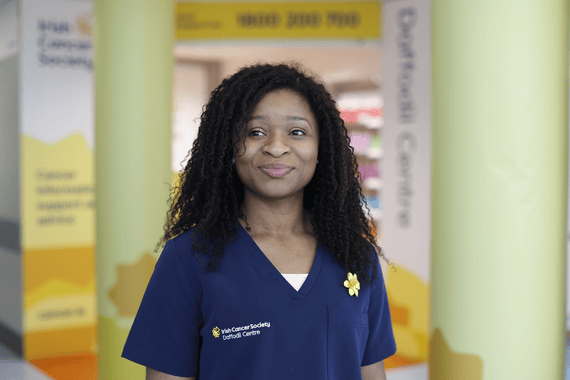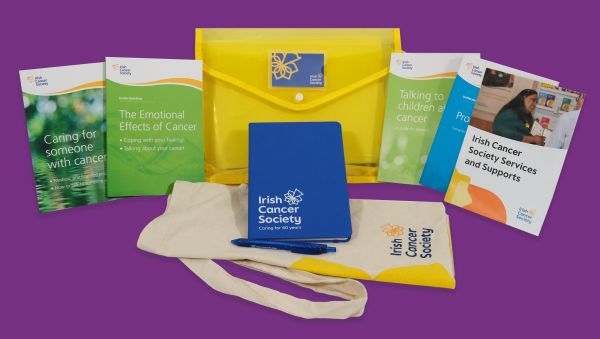Mouth, head and neck cancer
Diagnosis and tests
Diagnosing mouth, head and neck cancer
Your family doctor (GP) will talk to you about your symptoms. They will examine you and may do blood tests. Sometimes a dentist will notice an abnormal change during a routine check-up.
Your GP or dentist will refer you to hospital if they think you need more tests. Other tests you might have include:
A specialist will inspect your mouth, throat, tongue, nose and neck for changes or lumps, using a small mirror. Your neck, lips, gums and cheeks will be checked for lumps.
Using a flexible tube with a light and a camera to look for unusual changes in your nose or throat area. For example, a nasendoscopy or panendoscopy. A biopsy may be taken during the scope.
This uses high-energy rays to take pictures of the inside of your body. It can be used to checks for abnormalities in your jaw and chest.
Taking a sample of cells and checking them for cancer under a microscope.
Your doctor uses a fine needle and syringe to take a sample of cells. The cells will be examined under a microscope.
Testing for a protein marker called P16, which shows if your cancer is HPV positive. HPV positive tumours respond well to certain types of treatment.
This test will let your doctor examine your larynx more clearly and take a sample of cells. A thin metal tube with a light and microscope on the end (laryngoscope) is passed down your throat. You’ll have a general anaesthetic for this test.
Ear, nose and throat (ENT) specialists, oral surgeons and maxillofacial surgeons are doctors who specialise in treating diseases in the mouth, head and neck areas.

If you are diagnosed with head, neck and mouth cancer, we're here for you. Our cancer nurses are here if you need information or just want to talk. They can help you to understand your diagnosis and what to expect, send you information and tell you about our services.
Further tests for head, neck and mouth cancer
You may need further tests to give your doctors more information about your general health and about the cancer. For example:
Some gel is first put on your neck and the area is then scanned with a hand-held device called a probe. The probe changes the sound waves into an image of your neck on the computer. It can show any abnormal changes.
A special type of X-ray to give a picture of the tissues inside your body.
A scan that uses magnetic energy to build up a picture of the tissues in your chest, abdomen and pelvis. During the scan you will lie inside a tunnel-like machine.
This scan uses a small amount of radiation to diagnose or monitor your cancer. Before the scan, a low dose of radiotracer (radioactive sugar) is injected into your arm. The PET scan then uses the radiotracer to highlight cancer cells in your body.
The tests you have can help to:
- Stage your cancer. This means finding out the size of your cancer and if it has spread.
- Grade your cancer. Grading describes the cancer cells and how they are expected to grow.
Some tests may be used see how you are responding to treatment.
Waiting for test results
While some results may come back quickly, others may take a few weeks. Waiting for results can be an anxious time. It may help to talk things over with your doctor or nurse or with a relative or close friend. You can also call our Support Line on 1800 200 700 or visit a Daffodil Centre to speak to a cancer nurse.
What are the stages of mouth, head and neck cancer?
Staging means finding out how big the cancer is and if it has spread to other parts of your body. Staging will help your doctor to plan the best treatment for you.
TNM staging system
The staging system normally used is called TNM. This stands for:
- The size of the tumour (T)
- If there is cancer in your lymph nodes (N)
- If the cancer has spread to other parts of your body (M for metastasis)
Number staging
Your doctor often uses the TNM information to give your cancer a number stage – from 1 to 4. A higher number means a more advanced cancer.
This is a small tumour and found in one place only.
The disease has spread to other areas of your head and neck.
The disease has spread to other parts of your body further away. This is known as secondary or metastatic cancer.
Your doctor might also use the terms 'early' and 'advanced'.
- Early cancer (stage 1 or 2): These cancers are small (less than 4cm in size) and have not spread.
- Advanced cancer (stage 3 or 4): These cancers are bigger (more than 4cm), have grown into nearby tissue, are in the lymph nodes or have spread to other parts of the body.
Knowing the stage and grade of your cancer helps your team to plan the best treatment for you.
What are the grades of mouth, head and neck cancer?
Grading refers to how abnormal the cells look under a microscope. Grade 1 means the cells look similar to normal cells, grade 2 cells look a bit different; grade 3 means they look very different from normal cells.
Lower grades are usually slower growing and less likely to spread. Higher grades tend to grow more quickly and are more likely to spread, but this is not always the case. Knowing the grade will help your doctor to recommend the best treatment for you.
Staging and grading can be hard to understand, so ask your doctor and nurse for more information if you need it.
Continue reading about mouth, head and neck cancer




Get help & support

Support Line
Free support pack

